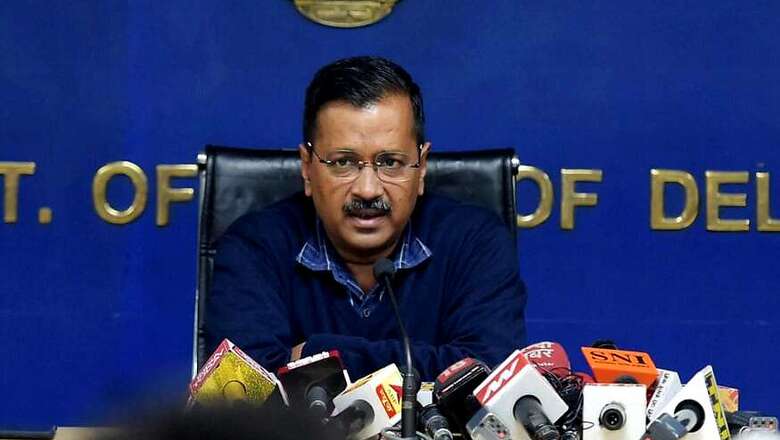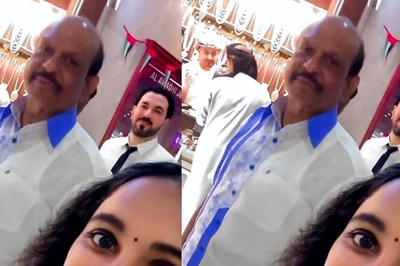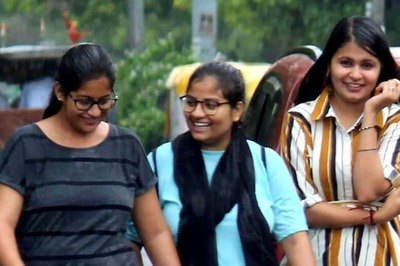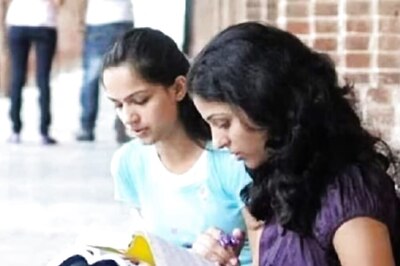
views
Delhi riots have exposed the dilemma Arvind Kejriwal is suffering from. His dilemma is if he wants to be an idealist activist who promised moon to the world, or to turn into a politician who only survives for power.
He is caught in the web at a time when the Indian society is going through a disruption. Indian society has been fast moving from the socialist-left-liberal-model to right-wing-supra-nationality posing a new dilemma before the Indian citizenry: should one should live with the larger pan-India-identity or should one assert their primary identity, which is religious.
Before passing a judgment on Kejriwal for his behaviour during the riots, one should try to understand the context in which he was operating. This was not the first time that India was witnessing riot of this proportion. Since the days of partition India has suffered many riots. Aligarh, Ahmedabad, Bhagalpur, Maliyana, Hashimpura, Muzaffarnagar are the few whose troublesome memories are still fresh in our consciousness.
I am deliberately not mentioning Sikh massacre of 1984 as it was not a clash between Hindu and Muslims. But those riots occurred in a different era. Those were times of different sensibilities. Nature of the state was different.
Delhi riots happened in a different time and space. First and the foremost, it has happened at a time when forces of Hindutva are not only deeply entrenched in the society but also occupying power with brute majority at the Centre.
They are no longer the fringe player in Indian polity, rather they are the principal leader. Secondly, as a consequence of the first, religious identities are the prime movers of existence. Hindus and Muslims both are very aggressively exhibiting their religions in public spaces. Thirdly, the forces of secular values are on the back foot, old traditions of public discourse are being replaced by new ones.
Fourthly, media, Supreme Court and other constitutional institutions, the guardians of the democratic ethos are on the retreat. Lastly, truth and reality is not any more driver of the public ecosystem. Untruth, lie and propaganda is shaping the mental make-up of each citizen.
This was the first time when communal forces had no shame of any kind. Communal forces on both the sides have been making provocative statements shamelessly and both have their massive fan following, and the state looked the other way. Forces of sanity lost the ground and muscular nationalism is upbeat. Seeking revenge for the history is the dominant narrative.
Muslim minority is openly called the enemy of the state. Home minister of the country draws parallel from the history and terms them as “termites” and a sitting minister exhorts people to kill such “traitors”. A protest for constitutional rights has been labelled a ploy for disintegration of the country. The voice of dissent is dubbed as anti-national. To be Indian, one is left with no option but to chant “Bharat Mata ki Jai” at the promoting of thugs and goons.
Delhi riots did not happen in a vacuum. The kind of campaign which was unleashed by the ruling party was unheard of. In my living memory as a journalist, I don’t remember any such election campaign when so much venom was poured to polarise voters. Hindu voters were asked to swear by Gita, Gangajal and Bhabhoot of Kashi Vishwanath temple. For BJP, it was not an election campaign; it was a war cry to protect Hindu religion from the “march of Islam”.
To vote for AAP was to vote for Islam; and Islam was projected as religion which will install Islamic State in which no Hindu will be safe, their mothers, daughters and wives will be abducted and raped. And there were evidences on the ground that BJP did succeed in its endeavour and it did take away a slice of AAP supporters.
If Kejriwal had gone to Shaheen Bagh or had openly supported their cause, he would have been in deep trouble. Manish Sisodia had almost lost his election reason being that he said in one of the TV interviews that he stood with Shaheen Bagh. So, in the changed political ecosystem, the fight is not to win Muslim votes but to give confidence to Hindus that he or she will protect their interests. Modi has successfully made Muslim voters irrelevant. The politics of Muslim appeasement to a certain extent is dead and buried. Politics of Hindu appeasement is the new catch phrase. Bajrang Bali is Arvind Kejriwal’s new saviour. Muslim skull cap is out, Hindu teeka or tilak is in.
When Delhi riot broke out Kejriwal had beaten BJP by 62 to 8 assembly seats. He succeeded in proving himself a Hindu leader who has no lust for Muslim votes. Riots happened in that part of Delhi where Muslims are in large numbers. The areas of Jaffrabad, Seelampur, Karawal Nagar and Chandbagh have sizeable Muslim population.
Kejriwal visiting these areas would have immediately given BJP an excuse to brand him as pro-Muslim. No doubt Hindus have also been killed in these riots. But their number is less in comparison to Muslims. If Kejriwal had visited riot affected areas, BJP and the forces of Hindutva who have mastered the art of manipulating half-truths and constructing a non-existent narrative, would have savagely mutilated his newly acquired image of a Hindu leader.
Still, Kejriwal being the chief minister of Delhi, the elected representative of the population, should have visited riot affected areas. He should have camped there. This would have given confidence to the local population and also would have forced law and order agencies to put their maximum might to douse the communal fire. He decided to stay at home.
He only visited riot victims in hospitals and a few fringe areas. He refused to openly blame those who instigated riots and did not ask why central government did not push Delhi police for timely action. Rather he had a meeting with Amit Shah. In his earlier avatar, Kejriwal would have not spared Shah, who holds the charge for law and order in the national capital.
Kejriwal also took no time in suspending his party councillor Tahir Hussain, who is accused of killing IB officer Ankit Sharma by his family. Hussain was not given any opportunity to prove his innocence by the party.
Within half an hour of an FIR being lodged against Hussain, he was suspended and left to defend himself. There is no denying the fact that lot of unwanted material was found at his residence which could have been used in the riot. But there is another version that his house was ransacked by the rampaging mob and he and his family was evacuated by the police and he was residing not at his residence when these materials were found.
Instead of listening to his own party man, Kejriwal demanded that he should be arrested and should be punished. He declared him guilty before court could utter a word. This was another attempt not to be seen with Muslims.
Then he gave sanction for Kanhaiya Kumar to be prosecuted in JNU’s ‘Tukde-Tukde’ sedition case after sitting on the file for more than seven months. If there was no merit in the case as his own enquiry committee had found when the incident occurred, then why did he not deny the permission?
The BJP had been using Kumar’s handle to project him anti-national. In the new ecosystem if he had not given permission for prosecuting Kumar, BJP would have severed his carefully constructed nationalist Hindu image.
Kejriwal, it appears that he is no longer the idealist activist who used to fight for all the right cause; who did not guide himself from the Hindu Muslim binary; who used to hate politicians; who was in politics to change politics. Alas, politics changed him. No wonder he was not visible during riots and did not stand for the justice, he turned towards tokenism. Kejriwal is now a politician for whom only votes matter.
(The author is a senior journalist and was formerly with AAP. Views expressed in the article are personal).




















Comments
0 comment